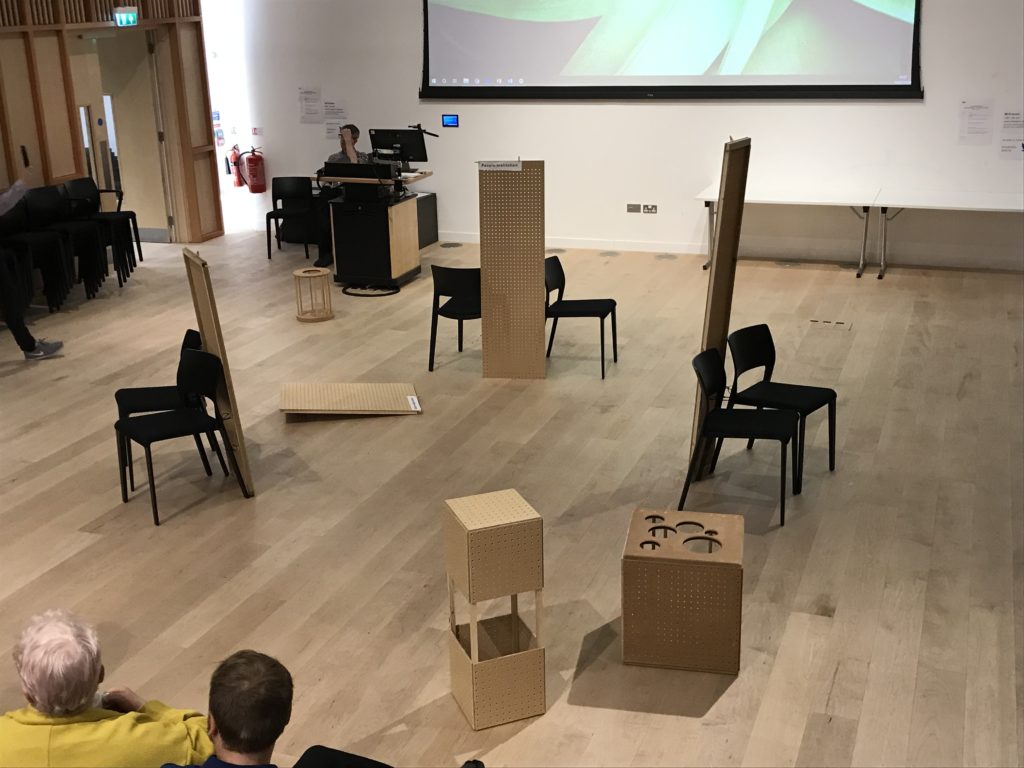On the 10th July 2019 we ran the ‘Networked Making’ event at the University of the Arts London. This post introduces a podcast in which myself and Jon Martin reflect on the ‘Making Networks’ workshop activity we designed for the start of the day
(with input from Dr Sheena Calvert and the ‘Interpolate’ student group) .
The activity was described as: “A workshop session in which participants collaboratively make and reflect on a physical model/metaphor of their networks.”

The Podcast is offered here unedited. I may try and edit it down to around 20min for Spark, our UAL creative teaching and learning journal.
https://daveowhite.com/wp-content/uploads/2019/08/networkedmaking.mp3
Themes touched upon in the podcast include: reflection, thinking-through-making, ambiguity, risk, trust, play.
There is also a YouTube version of the podcast if you require captions
Sheena and two Interpolate students, Jack and Safiya, helped to facilitate the activity.
Participants were asked to ‘make’ a version of their networks and were presented with a number of peg-boards, a few other objects, cord, index cards, pegs, pens, various fasteners etc. The boards had labels on them such as ‘Work – Mode’, ‘Tool – Space’, ‘People – Institution’ and ‘Desire – Aspiration’.
Around 30 participants engaged with the activity for about half-an-hour then we convened a short discussion.
The best way to get a sense of the activity is to watch this very short video:
Networked Making – Making Networks from Teaching and Learning Exchange on Vimeo.
The full description of the event:
Whether it be through collaboration, in a collective or as part of a cohort, the practices of making are never without context and commonly not undertaken alone. We understand that our students are keen to make and work in disciplinary and interdisciplinary networks as this nourishes and
supports creative practice, reflecting the fluidity of the professional environment.Networked making, including writing, is often facilitated by digital connections which allow us to go beyond the physical boundaries of the studio, seminar room or lecture theatre. Yet, while we all work online’ in some form, the practices of networked making are still emerging. The diversity of
voices the digital allows us to include and connect encourages us to reconsider our modes of learning and teaching for making.This UAL Teaching Platform invites participants to discover and explore the potential of networked making through collaboration, discussion and, of course, making. “